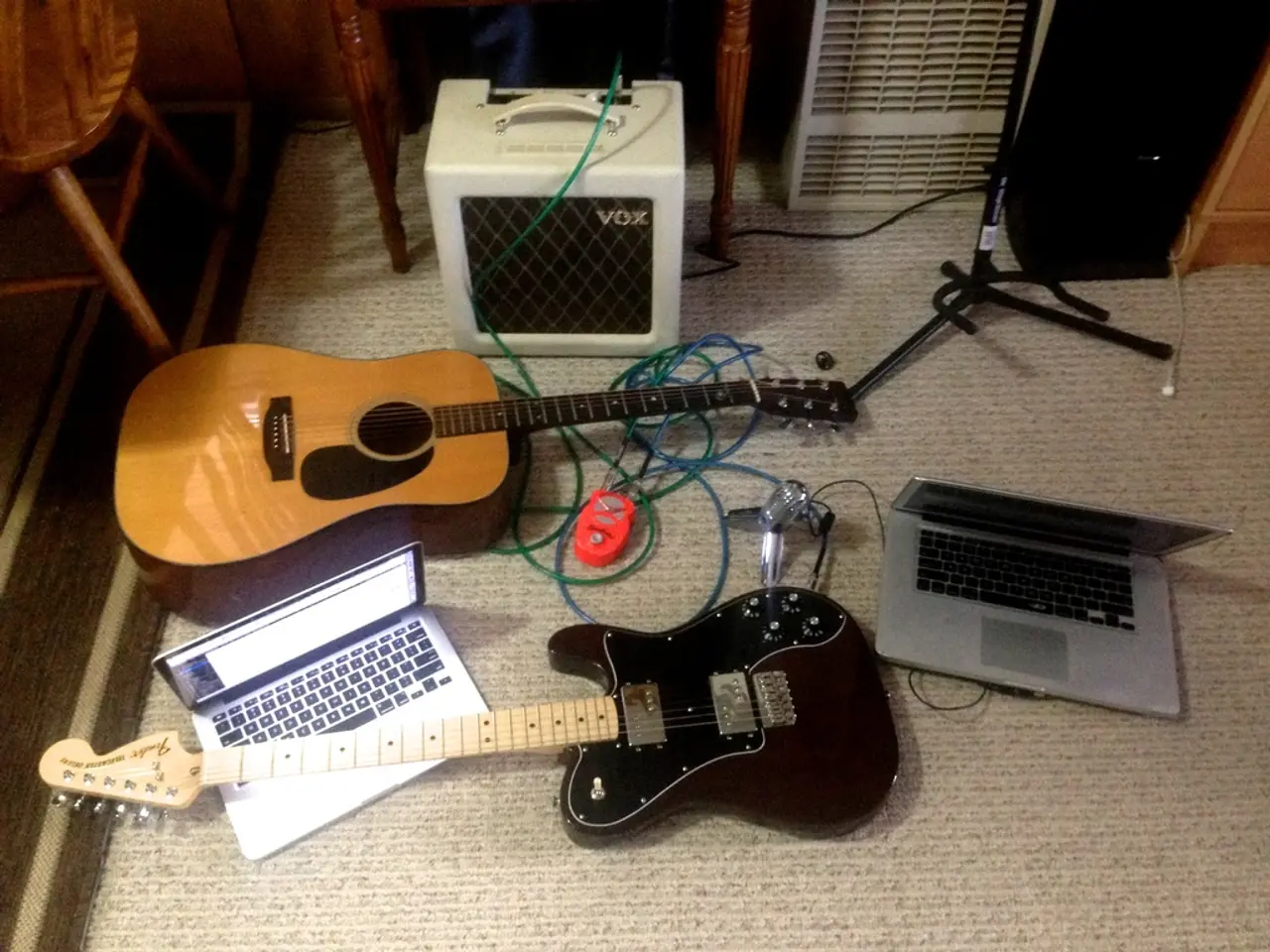Mastering Sound Engineering: Quickly Grasp the Fundamentals
For those eager to self-teach sound engineering, a blend of structured courses, hands-on software tutorials, and foundational books can offer a well-rounded education. Here are some of the best resources currently available, categorised by format and focus.
**Courses & Video Tutorials**
1. **Coursesity’s Adobe Audition Tutorials**: Ideal for beginners, this platform provides a range of beginner-friendly courses for Adobe Audition, a popular digital audio workstation (DAW) used for recording, editing, mixing, and mastering audio. Courses like "Adobe Audition CC: The Beginner’s Guide" cover everything from basic audio editing to professional mixing and mastering, podcast production, and exporting high-quality files.
2. **FL Studio 20 Tutorial (Coursesity)**: A free online course designed for aspiring music producers, this resource demystifies FL Studio 20, covering its interface, Channel Rack, Playlist, Piano Roll, Mixer, MIDI recording, arranging, mixing, and exporting tracks. It's a practical guide for creating your own music from scratch and learning real-world DAW skills.
3. **Groove3**: Offering an extensive, high-quality library of video courses (over 4,500 courses and 29,000+ tutorials) taught by industry professionals, Groove3 covers DAWs, mixing, producing, mastering, and even instrument-specific content. New tutorials are added weekly, making it suitable for learning at your own pace.
**Books**
1. **Audio Engineering 101 by Tim Dittmar**: This book is perfect for complete beginners, providing clear explanations of sound basics, microphone types, analog vs. digital recording, and practical guidance on mixing and mastering. It's praised for making technical concepts accessible and is a solid starting point for anyone serious about sound engineering.
2. **Essential Sound Toolkit**: This beginner-friendly book introduces core sound engineering techniques—shaping, mixing, recording—through a personalised, step-by-step approach. It's designed to adapt to your learning style and goals, helping you build confidence and foundational skills for professional-quality results.
**Recommended Learning Path**
1. **Start with Fundamentals**: Begin with a foundational book like *Audio Engineering 101* or *Essential Sound Toolkit* to grasp the science and terminology of sound.
2. **Choose a DAW and Follow Tutorials**: Decide whether you're interested in music production (FL Studio), podcasting, or post-production (Adobe Audition). Follow step-by-step online courses to get hands-on experience.
3. **Expand with Video Libraries**: Use platforms like Groove3 to explore advanced topics, workflows, and software-specific techniques as your skills grow.
4. **Practice and Experiment**: Apply what you learn by creating your own projects, whether music, podcasts, or soundtracks, to reinforce your understanding.
**Summary Table**
| Resource Type | Best For | Notable Resource | |-----------------------|-----------------------------------|---------------------------------------------------| | Online Courses | Software-specific skills | Coursesity (Adobe Audition, FL Studio)[1][3] | | Video Libraries | Broad, in-depth topics | Groove3[4] | | Books | Foundational theory & practice | Audio Engineering 101, Essential Sound Toolkit[2] |
These resources provide a comprehensive, accessible approach for beginners to self-teach sound engineering, whether your interest is in music production, podcasting, or audio post-production. Start with the basics, build practical skills with tutorials, and continuously expand your knowledge with professional video courses.
- For beginners in music production, Coursesity's Adobe Audition Tutorials offer a variety of courses on Adobe Audition, a popular DAW, that covers basic audio editing, professional mixing and mastering, podcast production, and more.
- Aspiring music producers can benefit from the FL Studio 20 Tutorial (Coursesity), which teaches FL Studio 20's interface, Channel Rack, Playlist, Piano Roll, Mixer, MIDI recording, arranging, mixing, and exporting tracks.
- Industry professionals teach extensive, high-quality video courses on Groove3, covering DAWs, mixing, producing, mastering, and even instrument-specific content, with new tutorials added weekly.
- For those wanting to understand the science and terminology of sound, books like Audio Engineering 101 by Tim Dittmar or Essential Sound Toolkit offer clear explanations and practical guidance on microphone types, analog vs. digital recording, and mixing and mastering.
- To expand on foundational skills, video courses from Groove3 can be used to explore advanced topics, workflows, and software-specific techniques.
- To practice and reinforce understanding, creating personal projects such as music, podcasts, or soundtracks is recommended.
- By starting with foundational books, choosing a DAW, following online courses, expanding with video libraries, and practicing, one can self-teach sound engineering for career development or self-development in the field of sound engineering, with online education being a viable option.




